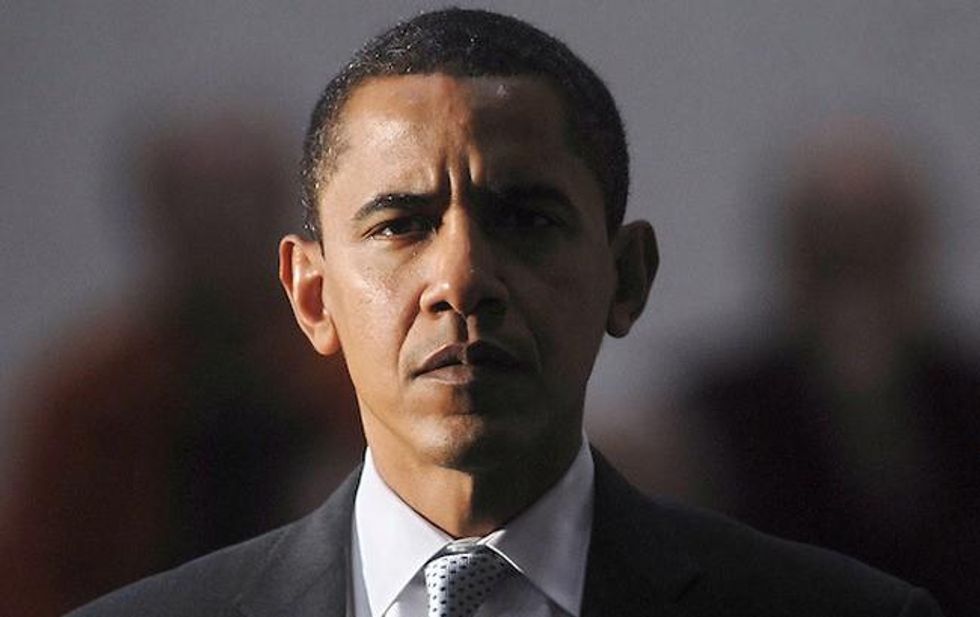The
Obama Administration is fiercely campaigning against a proposed legislative measure in the House--up for debate Wednesday--to curb
NSA secret spying, on the grounds that the measure is not 'open or deliberative' enough.
Critics slam the hypocrisy of invoking transparency to defend a secret spying program given free reign in closed-door NSA meetings and FISA courts and conducted without the consent of millions of people caught in the surveillance dragnet.
The White House released a statement Tuesday declaring, "[W]e oppose the current effort in the House to hastily dismantle one of our Intelligence Community's counterterrorism tools. This blunt approach is not the product of an informed, open, or deliberative process."
Guardian journalist Glenn Greenwald--who broke the story on secret spying exposed by NSA whistleblower Edward Snowden--was quick to seize on the irony of the White House statement on Twitter.
Meanwhile, Senator Ron Wyden warned that the NSA spying program has a staggeringly far reach with no real accountability. Addressing an event hosted by the Center for American Progress Action Fund on Tuesday, he warned:
The combination of increasingly advanced technology with a breakdown in the checks and balances that limit government action could lead us to a surveillance state that cannot be reversed.
The legislative measure, introduced to the House by Michigan Republican Justin Amash, is aimed at preventing the NSA from accessing millions of US phone records without consent. This will be the first vote in Congress to curb the NSA's secret spying powers since the scandal erupted, and it has garnered bipartisan support.
The Wednesday congressional debate--with a vote expected Wednesday or Thursday--comes just days after secret courts reapproved the phone data collection program Friday. The Obama Administration has fiercely defended the spying and lobbied against any proposed curbs, and NSA Director General Keith Alexander held an emergency closed-door briefing with Congress on Tuesday to forcefully urge rejection of the proposed amendment.
Yet, the Obama Administration has been unable to contain mounting public outrage at the secret spying now making its way to Congress.
"The public was not just kept in the dark about the Patriot Act and other secret authorities," Wyden said. "The public was actively misled."
_____________________





